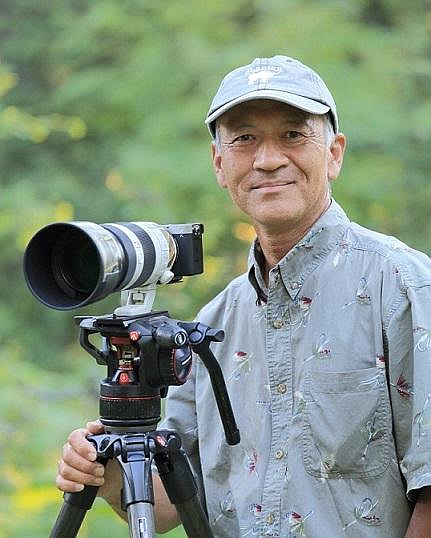Speaker series focuses topics related to Glacier National Park
The Glacier National Park Volunteer’s Association is holding a three-part winter speaker series in January, February and March.
Speakers will each discuss different topics as they relate to Glacier National Park including wildlife photography, ecology, conservation, history and construction. All presentations are free and open to the public.
Sumio Harada will be the first speaker of the series, at 7 p.m. on Jan. 23 in the Northwest Montana History Museum at Central School Museum upstairs, 124 Second Ave. E, Kalispell; an elevator is available.
Wildlife photographer Harada was born in Japan. He studied biology at the Tokyo University of Agriculture. His research on the behavior of the Japanese serow, a close relative of the mountain goat, led to his wildlife photography career. Sumio started to take mountain goat photographs in the Canadian Rockies in 1987. In 1994, he moved to West Glacier to photograph mountain goats in Glacier Park. Since then, his works have been published in many magazines and books internationally including National Geographic, National Wildlife, Ranger Rick, Montana Magazine, Montana Outdoors and many Japanese magazines and books. In 2016, after he published the last photo book, Wild Harmony of Glacier National Park, he started to shoot videos to document the entire life cycle of mountain goats. He lives in Coram with his wife Kumi.
The second speaker of the series, Jamie Belt, will be speaking at 7 p.m. on Feb. 27 at the Northwest Montana History Museum at Central School Museum upstairs, 124 Second Ave. E, Kalispell; an elevator is available. Her talk will discuss Glacier’s Citizen Science Program touching on what has been learned and what there is still to learn through the program.
Belt is a biologist at Glacier National Park and has led Glacier's Citizen Science Program since 2006. She loves to eat fruit, run and work with people who love the places they call home. She lives in West Glacier with her two sons.
The third speaker of the series, Bill Dakin, will be discussing the construction of Glacier’s Going-to-the-Sun Road at 7 p.m. on March 27 at the Northwest Montana History Museum at Central School Museum upstairs, 124 Second Ave. E, Kalispell; an elevator is available.
Columbia Falls native Dakin obtained a bachelor of science in history at Montana State University in 1971 and a master’s of arts in anthropology at University of Montana in 1981.
He was a Glacier Park road crew leader and equipment operator for a dozen years, and with the late fellow crewman and historian Dennis Holden, was tasked by Superintendent Robert Haraden to research the Sun Road’s construction history for the park’s 50th anniversary “reunion” of surviving construction workers in 1983. His program was presented to the Montana Historical Society’s 2010 conference focused on Glacier’s centennial. As new historic resources are found, he has enhanced this one-hour slide presentation and narrative.
“I’ve been a history buff since I could listen and read,” he said. “I spent a decade of my working life on ‘the hill’. I think being informed about why the road came to be and how and by whom it was built enhances anyone’s enjoyment of it."
He suggests that attendees review the Ken Burns PBS documentary on our national parks (episodes three and four) to add perspective to the program. Dakin was appointed in 2000 by Interior Secretary Bruce Babbitt to the NPS’ Going-to-the-Sun Road Citizens Advisory Committee to advise on its reconstruction.
